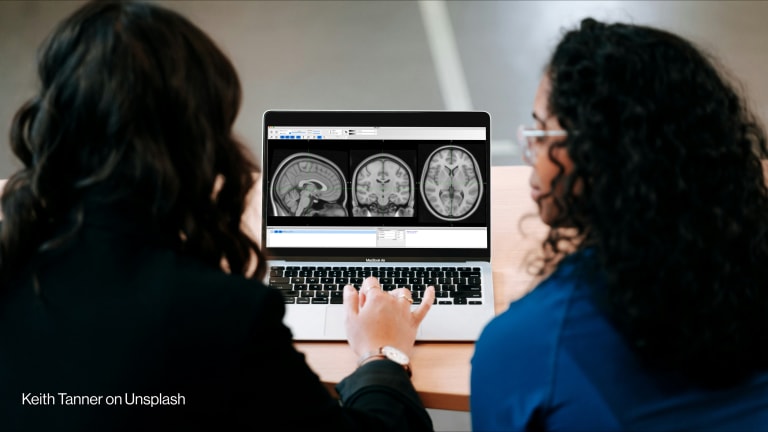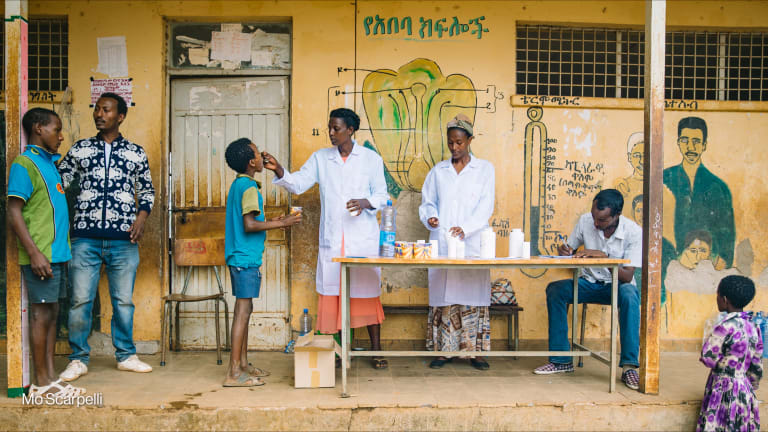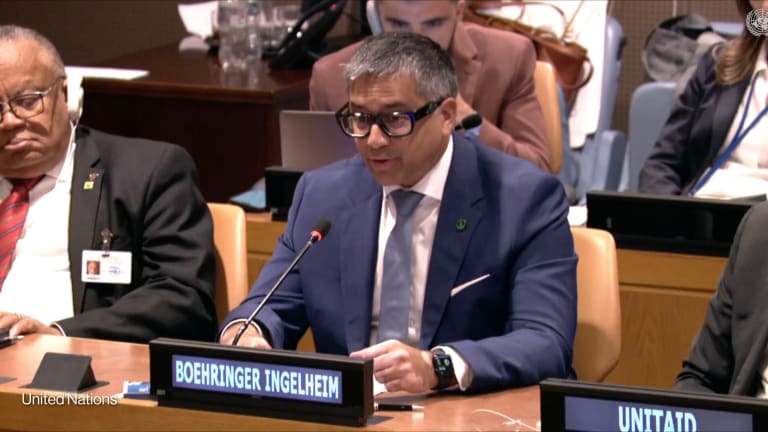
Dementia is one of many conditions within a very large group of noncommunicable diseases that, until recently, has not been given the focus it deserves within this cohort. There are an estimated 50 million people currently living with dementia and a new diagnosis of dementia globally every three seconds. The World Health Organization also states that “dementia is one of the major causes of disability and dependency among older people worldwide.”
It is important to note that many national health systems exclude the collection of data on their citizens over age 60, others only report data to age 49, and less data is collected on women and girls than on men. There is a need to disaggregate data by disability, sex, and age to understand the state of women with disabilities, especially in low- and middle-income countries and remote communities, and to inform policies to ensure their effective inclusion and the full realization of their human rights. Disability due to many forms of dementia, especially Alzheimer’s disease, is often only diagnosed in later life, which therefore results in likely undercount of disability.
Prescribed Disengagement®
This equates to people with dementia being advised at the time of diagnosis that there is "nothing we can do, and to go home and get our end of life affairs in order, via aged care." The whole health care sector, including Alzheimer associations, supports this, by advising patients to give up their prediagnosis life, and acquire brain injury style rehabilitation — cognitive and physical — rather than supporting them to live positively.
To date, health care systems and governments are still viewing and managing dementia through a medicalized model, rather than the lens of disability, and people newly diagnosed are still being Prescribed Disengagement®. In my experience, dementia is the only condition where people are advised to “go home and get their end of life affairs in order via aged care,” rather than being advised to “fight for their lives.” I was diagnosed at the age of 49, a working mother of two teenage sons, also studying full time. Being told to go home and prepare to die, including spending a day each month in aged care “to get used to it,” as if I was going to go from diagnosis to end stage overnight, was not only unpalatable, it was a breach of my human rights, and set me up to fail.
Managing dementia like NCDs
Convention on the Rights of Persons with Disabilities
The CRPD and its optional protocol was adopted on Dec. 13, 2006 at the United Nations headquarters in New York.
According to the U.N., the CRPD “is intended as a human rights instrument with an explicit, social development dimension. It adopts a broad categorization of persons with disabilities and reaffirms that all persons with all types of disabilities must enjoy all human rights and fundamental freedoms. It clarifies and qualifies how all categories of rights apply to persons with disabilities and identifies areas where adaptations have to be made for persons with disabilities to effectively exercise their rights and areas where their rights have been violated, and where protection of rights must be reinforced.”
While there are still no disease modifying drugs available, and a cure is unlikely even for one type of dementia by 2025, I believe globally, we need a new way of not only viewing dementia, but also managing it. Although dementia is a terminal disease, if we manage dementia as a chronic progressive disease, in the same way we do for heart disease or diabetes, we may potentially slow the progression of the disease. More importantly, the quality of life and experience of dementia will be more positive for those of us who are diagnosed. There is an abundance of emerging evidence indicating a similar approach that could reduce the risk of dementia, slow the progression, and even reverse early stage dementia.
Everyone with dementia is a rights bearer under the United Nations. The Convention on the Rights of Persons with Disabilities and all states party to it are committed under international law to include persons with dementia in the convention’s implementation.
There is limited evidence that this right is being realized, however. Many with dementia still face abuse and violations of their basic rights. This can range from a lack of access to health services to a culture of discrimination and even violence against those with the condition.
People living with dementia everywhere must be supported to claim their rights as human beings with disabilities. We are still being segregated in locked units and institutions.
Human rights in dementia
Dementia must be seen not only as a condition bringing with it acquired cognitive disabilities, like a stroke or brain injury, but one that involves the basic human right of being provided with rehabilitation and proactive disability assessment support at time of diagnosis, for a period of at least 10 years.
“If we manage dementia as a chronic progressive disease, in the same way we do for heart disease or diabetes, potentially we might slow the progression of the disease, but more importantly, the quality of life and experience of dementia will be more positive for those of us who are diagnosed.”
— Kate Swaffer, chair, CEO, co-founder, Dementia Alliance InternationalNow that the WHO Global Action Plan on the Public Health Response to Dementia 2017-2025 has been adopted, human rights must be included in all dementia services, as well as national dementia plans and strategies. This not only means receiving a timely diagnosis, it means rehabilitation and disability support.
Dementia needs a new model of postdiagnostic support and care, supporting the acquired disabilities dementia brings, and including proactive support to assist people to remain independent for longer. The phasing out of institutional care, of chemical and physical restraint of any kind, including secure dementia or memory units, is also essential to ensure that the human rights of the 50 million people currently living with dementia — and the 152 million expected to be living with dementia by 2056 — do not continue to be ignored.
Finally, we ask governments, member states,, NGOs, disability organizations, and civil society to consider their responsibility to provide the financial support so often needed to enable people living with dementia to attend meetings and conferences on these and other matters affecting them — “Nothing about us, without us.” We ask we leave no one behind through the full implementation of the CRPD, including people with dementia.
Personally, I also look forward to the day when we no longer have to define people by disease or disability, and we are all treated equally.
For more coverage of NCDs, visit the Taking the Pulse series here.









